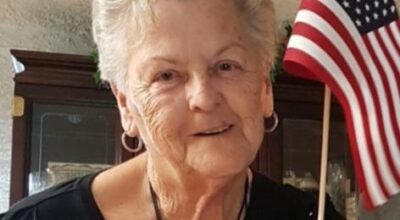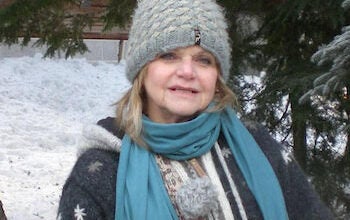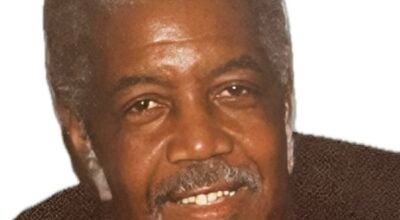Overcoming hatred through forgiveness
Published 7:00 am Saturday, August 3, 2019
By Fr. Jonathan Filkins
It was early June 1944, and the mostly 18 and 19-year olds were being assembled to execute the greatest amphibious landing in history. Joe Brady was one of those teenagers. He had never been away from home before, only been in the Army a few months, and was scared down to the soles of his feet. Everything around him seemed to be chaos personified, and it was only his buddies which made any sense.
Late on the night of June fifth, his company marched down to the Southern England quay and boarded the camouflaged LST. Inside the dark and damp interior, the smell of fear arose to assail Joe’s every sense.
Yet, in spite of not knowing what lay before him, there was an inner peace; the source of which he could not identify. It must have shown itself to several of his comrades, for they were looking to him for solace. It seemed quite odd, at least to him, that he would be giving comfort to his contemporaries.
Soon, just as the skies began to lighten, he, along with about 60 others, scrambled down the cargo nets to the wildly-bucking landing craft below. The shriek of the innumerable shells, sailing overhead, drown out the panicky conversations. Quickly filled with soldiers, the wooden boat bobbed in the swells, awaiting the order to proceed. They did not have to wait long.
When Joe went into the landing craft, he found himself in the stern, huddled with the rest of his comrades. Many were praying, most became seasick, and a few were even considering jumping overboard. About 50 yards from the beach, the front ramp came down, and some of the troops fell from enemy fire. Joe was able to half-swim, half-slog, up to the water’s edge. It was here that life became all inky-blackness.
Miraculously, Joe was evacuated to a hospital ship, where he awoke three days later. He learned the invasion had been successful, although many friends had died, or been injured. The greatest adjustment would be to learn to live without his left leg; for its removal was the only option after being shattered by enemy shrapnel. As he adjusted to this new reality, that sense of peace filled him again. It was as if some inner voice was saying, “It will all be OK,”
Yes, the soldier went back to his small home town. It was a place filled with family, relations and friends. His sacrifice was well known and it is, perhaps, what drove him to become a better father, husband, prosperous businessman, philanthropist, and community leader. Although Joe never wore his faith “on his sleeve,” he was devout in his practice and viewed his rescue from those bloody sands as divinely led.
However, as the thoughts of that day receded into the more distant parts of Joe’s mind, there was a burning need for settling an old score. What he was harboring, for those many years, was an extraordinary hatred for those who opposed him on that wind-swept shore. It was a hatred, so deeply seated, as to have seemingly become an intrinsic part of this otherwise gentle fellow.
Next to his recliner, were a stack of magazines. Picking one up, and idling through the pages, Joe almost went past the article’s headline, “To err is human, to forgive divine.” It brought him up short. Reading further, he learned the quote is from a poem on literary criticism by Alexander Pope.
Pope tells us we are all flawed and the only recourse is pursuing Godly values and virtues. Joe acknowledged his hatred and began to understand why true divine forgiveness is called for. As the healing progressed, the aged veteran returned to the now-empty beaches of Normandy. It was there he found a fellow who had also survived. He had been a teenage soldier of the German Army; scared just like Joe. Remarkably, each had been caring their own burdens from that day. Now, standing next to a crumbling pillbox, they embraced; and the divine healing begun.





